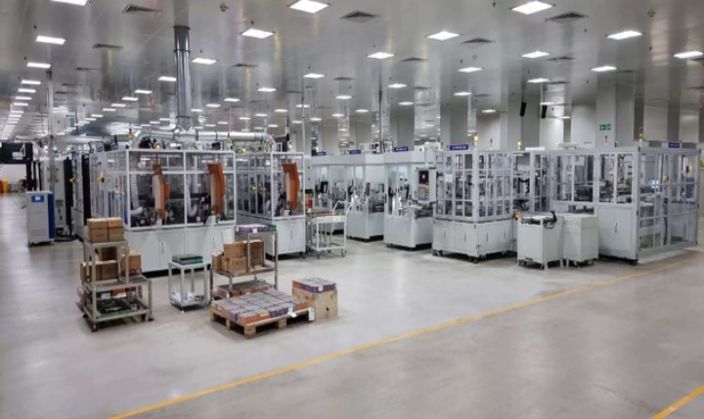India Advances in Battery Manufacturing

India is making significant strides in its advanced battery manufacturing sector. On February 17, 2025, the Ministry of Heavy Industries (MHI) signed a Programme Agreement with Reliance New Energy Battery Limited. This subsidiary of Reliance Industries Limited will benefit from the Production Linked Incentive (PLI) Scheme for Advanced Chemistry Cell (ACC). The agreement grants Reliance a capacity of 10 GWh for ACC production. This capacity was awarded after a competitive global tender process. It also makes Reliance eligible for incentives under India’s ₹ 18,100 crore PLI ACC scheme.
Milestones in Battery Manufacturing
The signing of this agreement marks a critical milestone in the implementation of the PLI Scheme. This scheme is part of the National Programme on Advanced Chemistry Cell (ACC) Battery Storage, which the Cabinet approved in May 2021. The total outlay for this initiative is ₹ 18,100 crore, with a goal of achieving a total manufacturing capacity of 50 GWh. With this latest signing, a cumulative capacity of 40 GWh has now been awarded to four selected beneficiary firms.
In the first round of bidding, conducted in March 2022, three beneficiary firms were allocated a total capacity of 30 GWh. The Programme Agreements for that round were signed in July 2022. This structured approach ensures that India is on track to meet its ambitious manufacturing goals. The government’s commitment to this sector is evident in the swift progress made since the inception of the PLI scheme.
Boosting Local Value Addition
During the signing ceremony, senior officials from MHI highlighted the importance of the PLI ACC Scheme. They emphasized that the scheme aims to enhance local value addition while keeping battery manufacturing costs competitive on a global scale. The flexibility granted to beneficiary firms allows them to adopt the most suitable technologies and inputs for establishing state-of-the-art ACC manufacturing facilities. This adaptability is crucial for supporting the electric vehicle (EV) and renewable energy storage sectors.
The PLI scheme is designed not just to incentivize production but also to foster innovation. By allowing companies to choose their technologies, the government is encouraging the development of cutting-edge solutions. This approach is expected to create a robust ecosystem for battery manufacturing in India, ultimately benefiting consumers and businesses alike.
Supporting E-Mobility and Domestic Manufacturing
In conjunction with the PLI ACC scheme, the Union Budget for FY2025-26 introduced transformative measures to accelerate domestic battery manufacturing. Notably, the Budget exempted 35 additional capital goods for EV battery manufacturing from Basic Customs Duty (BCD). This targeted initiative aims to boost the production of lithium-ion batteries within India.
The emphasis on reinforcing domestic manufacturing and promoting value addition underscores the government’s vision of establishing a self-reliant advanced battery ecosystem. The Ministry of Heavy Industries is committed to creating an enabling environment for innovation. This includes fostering a robust domestic supply chain and attracting significant Foreign Direct Investment (FDI). These elements are crucial for advancing India’s strategic vision for sustainable development and self-reliance.
The government’s initiatives have already acted as a catalyst for Indian cell manufacturers. More than ten companies have begun setting up over 100 GWh of additional capacity. This rapid expansion indicates a strong commitment to building a sustainable battery manufacturing sector in India.
Observer Voice is the one stop site for National, International news, Sports, Editor’s Choice, Art/culture contents, Quotes and much more. We also cover historical contents. Historical contents includes World History, Indian History, and what happened today. The website also covers Entertainment across the India and World.
Follow Us on Twitter, Instagram, Facebook, & LinkedIn

